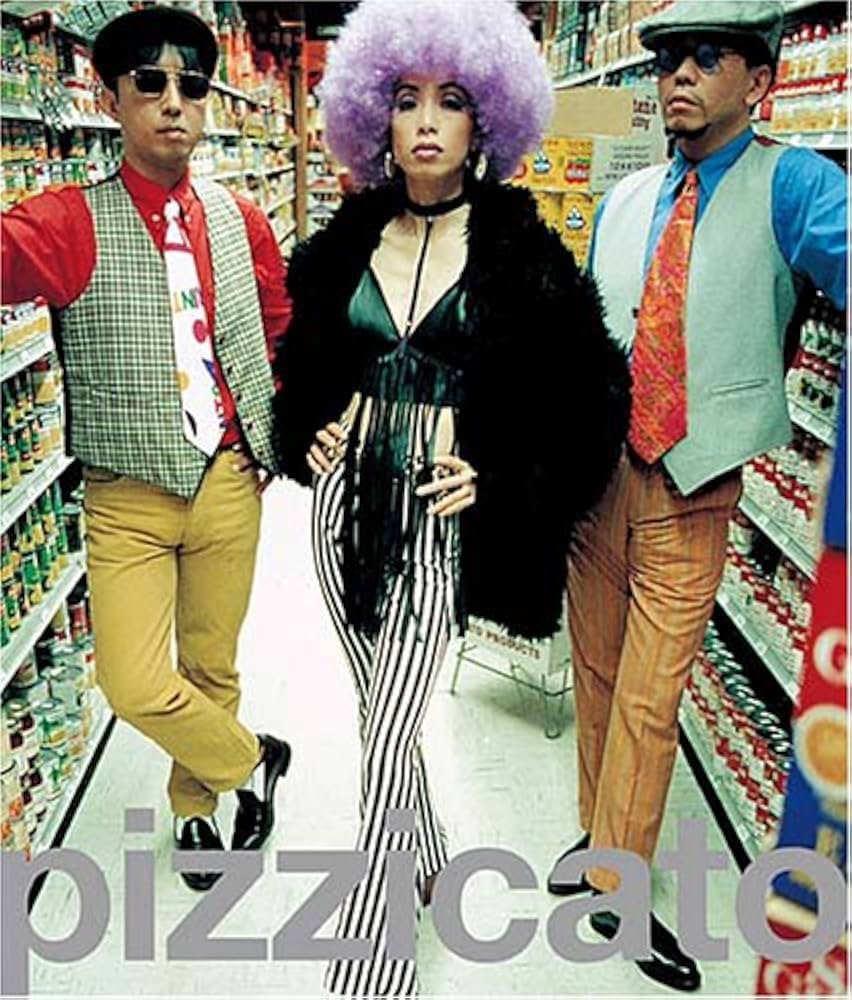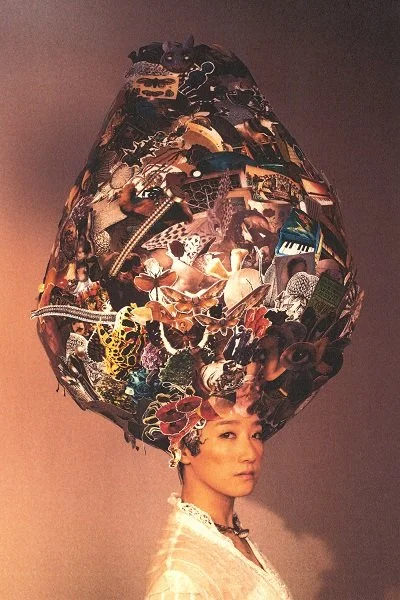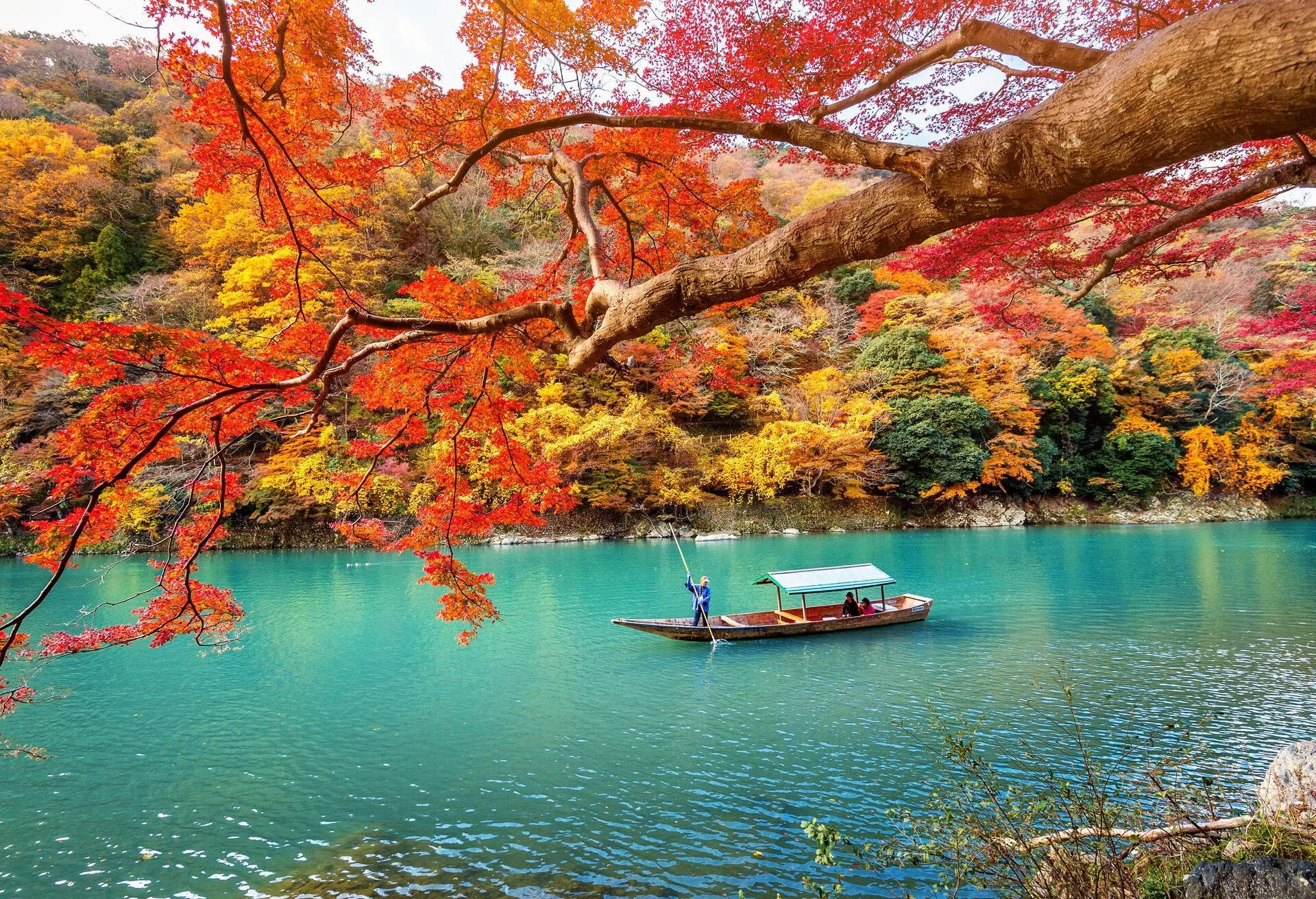By ajostu
Japan! A country with such a long, large and rich musical heritage is obviously going to be impossible to capture in two playlists. So I didn’t try. While the A-list may be more “prestigious”, for me having two lists means an opportunity to vibe with a topic in two different ways. For the A-list I’ve prioritised personal taste over breadth of material; if you (intentionally or otherwise) tried to play the guru then well done, it probably worked. The B-list songs are, for sure, songs that caught my ear and appealed, but I made a bit more of an effort to capture the kaleidoscope of nominations. The “songs about” all ended in the B-list, partly because that’s how I felt about them and partly because they worked well as a framing device for the Bs.
As a linguistic note I’ll be using western convention for names (surnames last), mostly because that’s what the artists tend to do when promoting themselves internationally. Otherwise I’ve just gone with what the nominator and/or YouTube has given. Song and band names wil be mostly English translation, possibly with romanji thrown in at random and inconsistently.
As usual, I’ve tried to find the links with the best audio quality (music videos, for example, are often in mono and distorted, or have extraneous bumph at the beginning or end, and there’s also the regional blocking curse). I’ve tried to ensure that the actual track is the same audio as the original nom (a mistake I’ve made in the past, apologies).
The あ A-List:
It's always good to start with something crunchy so I went with Tomoyasu Hotei and Battle Without Honour Or Humanity. It was first used in the soundtrack for a similarly titled Japanese film before featuring in Kill Bill (ta for the info IsabelleForshaw, you got beaten to the nom though).
Anime songs are a big promotional crossover deal in the Japanese music biz, even the biggest stars will sing a song for the OP (opening) or ED (ending) credits. Creepy Nuts went viral this year with the 2nd season OP from the anime TV series Mashle, with the song Bling-Bang-Bang-Born. I think Japanese is a great language for spoken word/ hip hop style music and this song’s a great example. If you want an insight into the wordplay there’s an extended linguistc breakdown here.
ATW (according to Wikipedia) Gen Hoshino wrote Life as the theme music to the 2023 Asian Games and World Athletics championships, held in close succession in Japan. The lyrics play into the metaphor of life as race (“Before I knew it, I was part of a race" / 'Win!' 'Keep running!' they said.”) It’s worth hunting down the fab music video.
Speaking of sporting events, Cornelius were supposed to feature heavily in the Tokyo Olympics before journalists unearthed some unfortunate interview comments from bandleader Keigo Oyamada from the 90s. He got dumped from the program, the usual art-vs-artist debates ensued, but the band went on to headline Fuji Rock and is still touring and releasing (rather good) albums. Point Of View Point comes from the 2001 album Point, which I consider to be their best.
Wednesday Campanella are a trio consisting of two behind the scenes musicians and a singer. Their original singer KOM_I (Koshi Misaki), who left a few years ago, features in Bamboo Princess. The band uses famous historical or fictional figures- Eastern or Western- as a metaphorical basis for their songwriting. ATW, The Bamboo Princess (Kaguya-hime) is regarded as the the oldest Japanese fictional prose narrative (monogatari) dating from the 10th century CE. There’s a Ghibli film. (I thought the oldest was Genji, but anyhoo…)
There were a number of terrific regional noms this week. ATN (According To Nicko) OKI (Oki Kane) and Umeko Aando are drawing on Ainu instruments and traditions for Iuta Upopo (Pestle Song) a gorgeous, hypnotic call-and-response. The Ainu are the indigineous of the northern islands (Hokkaido most obviously) and, as alluded to by Nicko, their culture has been ignored or suppressed through much of Japan’s history.
At the other end of the country, from Okinawa we have Yara Family with Shirahama Blues. Listening closely you’ll hear what sounds like very traditional vocals grafted onto 60s instrumentation. I wonder if originally the song was purely solo vocals and they’ve found the chords that make it work – the blues, in terms of the chord sequence, only appear in the intro and outro.
But there’s even further to go: Ishigaki Island lies further south west from Okinawa and is the home of the two women from Yanawaraba. ATTS (thanks Tarquin) their ballad Flowers features a “traditional Okiawan Sanshin, it is similar to the mainland Shamisen but the sound box is usually covered with snakeskin.”
Then an old favourite with Kyu Sakamoto and Ue o muite arukou which translates as “I look up as I walk.” It was lazily titled “Sukiyaki” in the West and became a big hit worldwide. In this chirpy song, our protagonist is in fact completely miserable, looking up at the sky so his tears don’t hit the ground.
Tamurapan
Tamurapan is the stage name of Tamura Ayumi – her song New World typifies a sort of chirpy pop sub-genre that seems to still be quite popular. One thing you’ll also notice in this song is the top-level string arrangement; one of the things I love about modern Japanese pop in general is the level of craft and musicality in the arranging.
Watching AKB-48 music videos can be a conflicting experience. On the one hand you can be outraged at the exploitative patriarchal control structures of the idol industry. On the other hand, it’s hard not to play Who Would You Do. It’s a model which, like so many other things, has been copied and finessed by South Korea. Hey don’t @ me. (Do people still say that?). AKB dominated the charts through some clever marketing, releasing multiple special editions so that rabid fans would buy more than one copy (Hi Taylor!). They also have an oppresive level control over their group members. Having said that, I really like their first album and Overtake is my favourite song of theirs. It has a great vocal harmony interlude which, you’ll note, is performed by session singers. For a chirpy pop song, the lyrics are interesting: our protagonist has realised that her friend is more talented and will forgo her own interests to help out. This kind of “find your place” mentality crops up in a lot of popular Japanese novels (Forest of Steel and Wool and most of the cat novels out there). Have you noticed how so many of the Japanese novels that get translated have this earnest, slightly preachy, almost didactic quality to them? Or is there a bias in the ones that get chosen for translation?
Conversely, ATW&TS, Seiko Oomori started out in punk bands and was seen as part of the “anti-idol” movement along with bands like BiS, pushing back against monolithic corporate control and with more of an indie aesthetic. Fin Girl is a recent release of hers, and it pushes a vaguely nihilistic theme I suppose? Having said that, she’s signed to major label Avex and when it comes to the music biz I’m always thinking: who has control and who gets the money?
We move on to Pizzicato Five and Twiggy Twiggy. I don’t have any particular informed commentary on this other than I think it’s great fun. There was quite a bit of stuff like this around in the 90’s. Or maybe it was just history repeating?
I then thought it was time to wind down with Uyama Hiroto and Carbon Rose, which , ATN, samples Miles Davis’ 70’s track Sanctuary.
ATW, Kodō are a modern taiko drum group from Sado Island, off the west coast of Honshu near Niigata. Meguru has the kind of rhythmic dynamism you’d expect; it was the blend of drumming with marimba that hooked me in.
The あ A-List Playlist:
Tomoyasu Hotei - Battle Without Honour Or Humanity (Shoegazer)
Creepy Nuts - Bling-Bang-Bang-Born (Marconius7)
Gen Hoshino - Life (Loud Atlas)
Cornelius - Point Of View Point (UncleBen)
Wednesday Campanella - The Bamboo Princess (pejepeine)
Oki feat. Umiko Ando - Iuta Upopo (Pestle Song) (Nicko)
Yara Family - Shirahama Blues (TarquinSpodd)
Yanawaraba - Flowers (TarquinSpodd)
Kyu Sakamoto - Sukiyaki (SweetHomeAlabama)
Tamurapan - New World (TarquinSpodd)
AKB-48 - Overtake (Marconius7)
Seiko Oomori - Fin Girl (TarquinSpodd)
Pizzicato Five - Twiggy Twiggy (UncleBen)
Uyama Hiroto - Carbon Rose (Nilpferd)
Kodo - Meguru (bluepeter)
The ば B-List Playlist:
Nitin Sawhney - Tokyo (severin)
Plastics - Copy (Fred Erickson)
The Wankys - C'mon And Feel The Terrible Noise (Carpgate)
Zazen Boys - Riff Man (Malcolm Short)
Kazumi Watanabe - Fu-Ren (BanazirGalbasi)
Takeshi Terauchi & Blue Jeans - Tsugaru Jongara Bushi (Traktor Albatrost)
Chizukan Takahashi - Tsugaru Jongara Bushi (Nicko)
Tony Scott - Is Not All One (Nicko)
Koichi Sugii - Kiso-Bushi (Nicko)
DJ Krush feat Rino - Shin-Sekai (Traktor Albatrost)
GBH - Tokyo After Dark (Carpgate)
Ebisu Muscats - Ebisu Animal Anthem (TarquinSpodd)
Veda Hille - Soapland Serenade (TatankaYotanka)
Seiko Oomori - Midnight Pure Heterosexual Relations (TarquinSpodd)
Manic Street Preachers - (I Miss The) Tokyo Skyline (happyclapper)
Guru’s Wildcard Picks:
I usually try and keep guru picks to three songs; I hope you’ll indulge a longer list this time.
Makoto Shinkai’s film Your Name is the second most successful anime film ever- dethroning Spirited Away but since overtaken by the Demon Slayer film. Its timing was perfect, riding the emerging wave of interest in anime and its quality was perfect for amplifying that interest. One of the great things about the film is the way the songs of RADWIMPS are integrated: Dream Lantern is the track used in the film’s opening sequence
YOASOBI are a duo: arranger Ayase started out as a Vocaloid producer before joining forces with singer Ikura. Idol is one of the biggest hits in Japan in several years. Released in 2023 it topped the charts for weeks, and rapidly racked up hundreds of millions of views (probably a more important metric in today’s world). For me they were the pick act at Coachella, they’re on my hit-list of Bands I’d Love To See Live.
Then to something completely different. I’ve chosen this next track in tribute to one of Japan’s great(?) cultural contributions to the world: karaoke. Singer/actress Aya Hirano here performs in character as Konata Izumi, main character in the high school anime Lucky Star. Hirano has a great voice; Izumi, not so much. She’s singing Cha-La Head-Cha-La, the classic song from another anime (DragonBall Z). This is a performance that will both cheer you up and remind you of the dangers of giving it 110%. Hirano was involved in one of those execrable sex scandals where she was accused of sleeping with every member of her backing band. Except the bass player.
Tokyo Incidents is the band formed by hugely successful female singer-songwriter Ringo Shiina, who came onto the scene in the late 90’s as one of a wave of female performers (Hikaru Utada and Ayumi Hamasaki the big names). Awakenings has a bit of a patriotic vibe, but in a positive “let’s make our country a better place” kind of way.
Now look, I know I have a habit of backending my playlists with maudlin songs, but if you’ll forgive me I’ve lined up three ballads in a row. The first is the classic Takeda Lullaby, in a gorgeous folk rendition by Red Birds. ATW: “In this lullaby, a young girl comforts herself by singing about her miserable situation. One day, she is forcibly sent away to work for a rich family at a village across the mountain. Every day as she works with a baby on her back, she is reminded of her family, looking at the silhouette of the mountains in the direction of her homeland.”
Spinning Globe was the closing credit song from the most recent Ghibli film The Boy And The Heron. (Speaking of preachy Japanese books, Genzaburo Yoshino’s How Do You Live, an inspiration for the film, is very much an example). Kenshi Yonezu was another who came from the world of Vocaloid and is one of the most popular singers in Japan right now. (His song Lemon was the biggest hit of recent times before YOASOBI came along).
Masashi Sada has had a long career since the 70’s in bands like Happy End. His recent song A Future Nostalgia invokes the flowering of sakura and the passing of the seasons in a song about lifelong love.
As an epilogue of sorts and fitting into the “songs about” side of things, I’ve included Japanese Suite by Gustav Holst. A bit of searching tells me that the melodies were sung to him by a Japanese dancer, and that he composed it in 1915 during a break from hacking away at the Planets. It’s an enjoyable work, if not quite at the level of his planetary masterpiece.
These playlists were inspired by readers' song nominations in response to last week's topic: Ongaku! Songs from or about Japan. The next topic will launch on Thursday after 1pm UK time.
New to comment? It is quick and easy. You just need to login to Disqus once. All is explained in About/FAQs ...
Fancy a turn behind the pumps at The Song Bar? Care to choose a playlist from songs nominated and write something about it? Then feel free to contact The Song Bar here, or try the usual email address. Also please follow us social media: Song Bar Twitter, Song Bar Facebook. Song Bar YouTube, and Song Bar Instagram. Please subscribe, follow and share.



